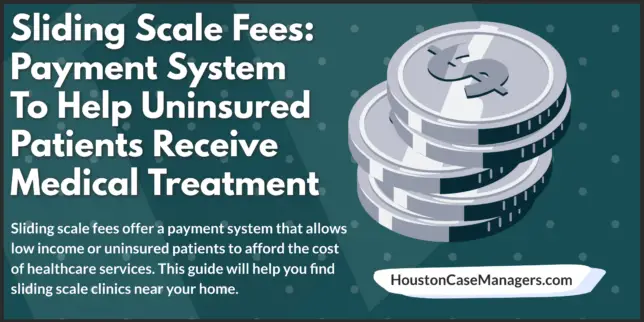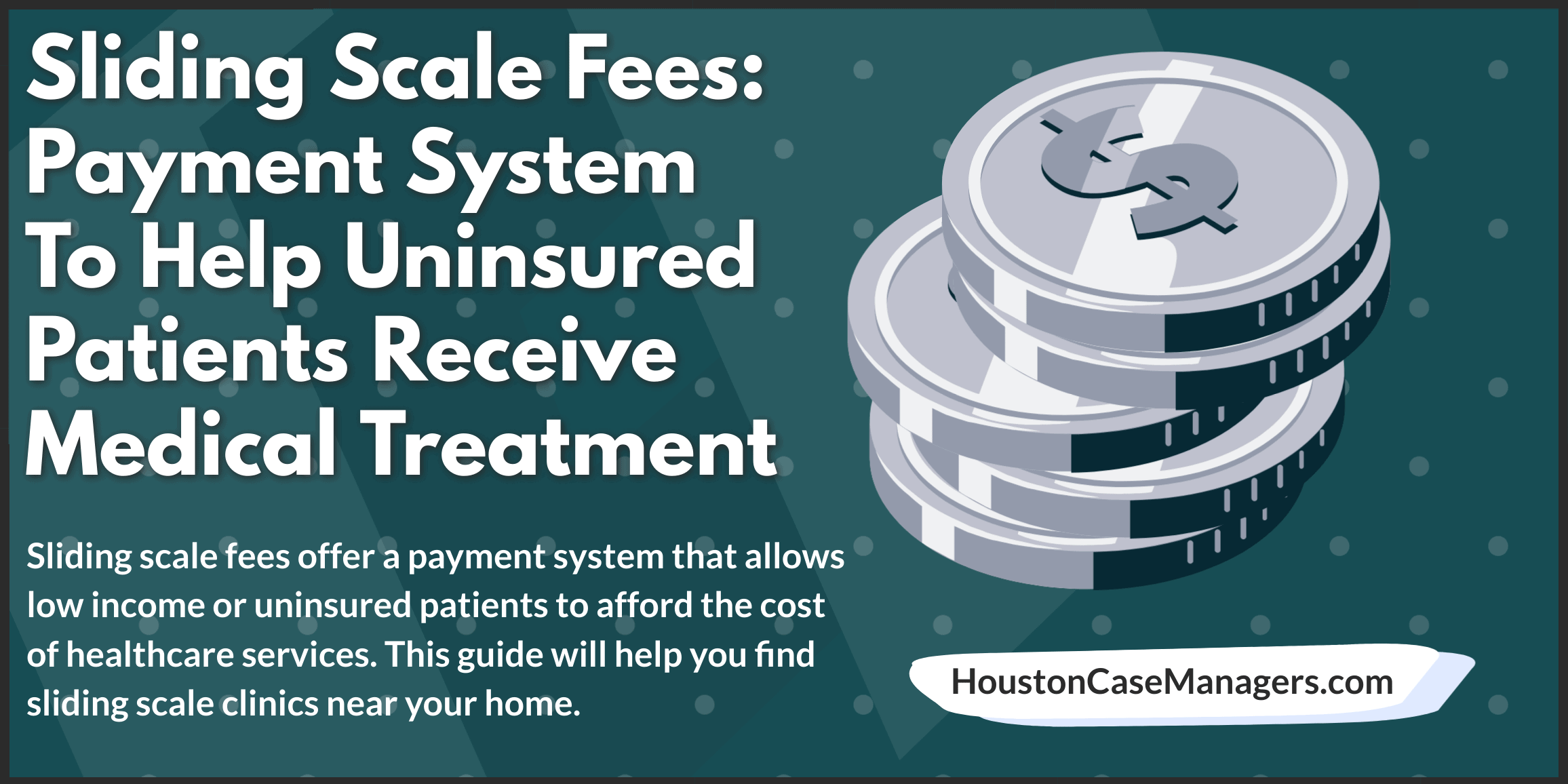Sliding Scale Fees: Payment System To Help Uninsured Patients Receive Medical Treatment
Healthcare is an important part of living a healthy life, but it can be incredibly difficult to afford.
Many people in need of medical attention cannot pay for their healthcare without help from others. These people are often left with no choice but to go without the treatment they need.
Sliding scale fees allow uninsured and low-income patients to get the care they require by charging them according to their income level instead of their ability to pay. This system helps thousands of Americans receive necessary medical care every year while helping doctors keep costs down so that more patients can afford their services.
In this guide I will tell you all about how sliding scale fees can help you and explain where you can find them.
Keep reading!
What Are Sliding Scale Fees?
Sliding scale fees are a system that allows people who can’t afford health care to pay for treatments. Sometimes patients can pay for treatments in installments.
The sliding fee scale is determined based on your income and assets, so it’s tailored to your personal financial situation. If you have a high income, then you will pay more for services than someone who is unemployed and receiving $0 each month.
What Types Of Treatment Are Offered At Sliding Scale Clinics?
Most clinics will offer preventative services like:
- Dental Care
- Vision care
- Mental Health Counseling
- Primary Healthcare Screenings
Not every sliding scale clinic offers the same medical services, therefore you will want to contact your clinic of choice first before scheduling an appointments to ensure they can treat your area of need.
Who Benefits From Sliding Scale Clinics?
Low-income and uninsured clients are most likely to benefit from sliding scale fees.
Faced with either paying for rent or a medical check-up many low-income clients choose to skip those routine check-ups. While it is certainly understandable why they are doing this, it can lead to more serious medical problems in the future.
Sliding scale clinics help make it easier for low-income families to get the healthcare that they need, when they need it.
Are Sliding Scale Clinics Free?
Sliding scale clinics can be free if your income is low enough. The “scale” will adjust according to how much money you make per month.
Every sliding scale clinic is different, however, again it is possible to receive free treatment if you have $0 income.
How Much Do You Pay For Sliding Scale Fee Treatment?
At these clinics, the staff will calculate the amount that you can afford to pay and how often.
For example, if you earn $200 a month from your job then they might charge for an office visit at 50% of what it costs for people who work 40 hours each week.
Do Sliding Scale Clinics Accept Health Insurance Payments?
Most sliding scale clinics accept health insurance payments.
That being said, some of the clinics would rather you pay out-of-pocket for your appointments and then submit an expense report to your employer or benefits provider so they can reimburse you when tax season rolls around. In these cases, it is possible that there will be a small co-pay for the office visit itself.
Sliding Scale Payments Systems In Federally Qualified Health Clinics
The type of clinic that you will most likely see a sliding scale payment system in is an FQHC or federally qualified health clinic.
FQHCs are required by law to offer sliding scale payments. This is because they receive government funding that must be used to provide care to underserved communities.
Client who receive care from FQHCs are sometimes low-income and it would be difficult for these patients to pay anything other than a reduced rate for medical services.
The FQHC can either charge $25 per visit or charge nothing at all if you can provide proof that your income falls below 100% of the Federal Poverty Level (FPL) guidelines.
If your monthly income does not allow you to qualify for a reduced rate, then they will ask you what percentage of the full charges your income falls under, 50%, 70%, 80%.
How To Find Federally Qualified Health Centers (FQHCs)
The easiest way to find FQHC in your area (that offers sliding scale payments) is by visiting the Health Resources and Services Administration (HRSA) website. They offer a FQHC locator that allows you to search for a low cost clinic in your zip code or by using an interactive map.
Sliding Scale Clinics In Houston (also known as FQHC clinics in Houston)
If you are in the Houston area, you can refer to our guide titled 15 Low Cost Medical Clinics in Houston That Treat The Uninsured.
In it you will find a number of quality sliding scale clinics that can provide you with outpatient care. Among the best Houston sliding scale clinics are Legacy Community Health, Avenue 360, Hope Clinic, and IBN Sina.
Conclusion
Sliding scale fees offer lower cost services to low income clients, which is a viable option for those who may be uninsured and not able to afford the full price of medical care.
Sliding scale fees make it possible for low-income patients and those who are uninsured to receive quality healthcare when they need it. Your income or a lack of health insurance does not matter, because they will provide treatment to you regardless.
If you need to find a sliding scale clinic near you, visit the HRSA website to use their FQHC locator.
Nick Bryant is the author of Understanding Healthcare Is Half The Battle and a Senior Counselor with 13+ years of experience working in community health and mental health. He enjoys spending time with his family, watching WWE on Friday nights, and working toward a Google Data Analytics certification. If you have additional questions about community resources or government assistance programs, simply leave a comment below and he will follow up as soon as possible.



